It will outline the key things to check when setting up and using LPG appliances and cylinders, provide examples of safe and unsafe practices and as well as advice and guidance to support the practical application of gas safety regulations.
This course has been designed to be practical and easy to follow. As such, we have excluded some of the science and regulatory details that accompany the use of LPG to avoid overcomplication.
This course will support employers with their legal responsibilities to ensure safe work practices for their employees and anyone affected by their work activity (such as the general public) as necessitated by the Health and Safety at Work Act 1974.






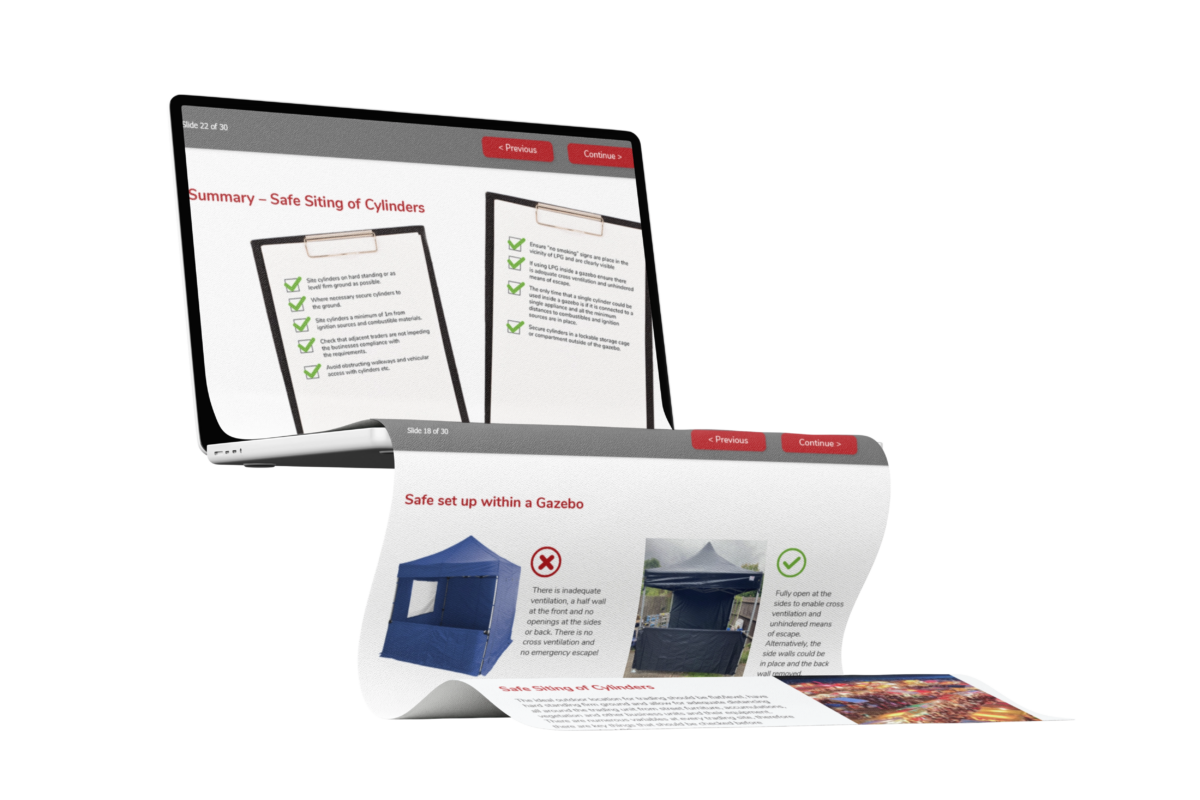
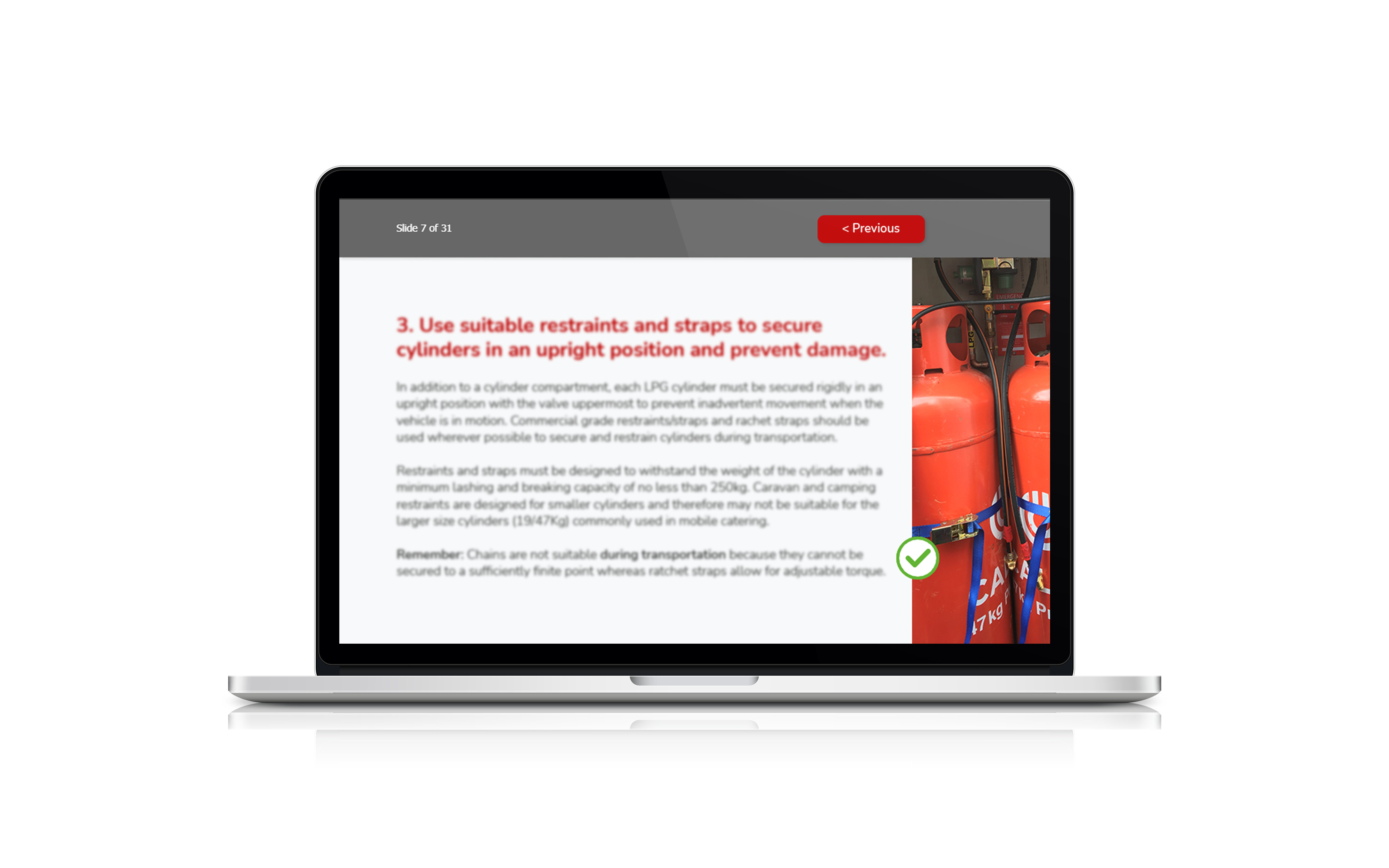
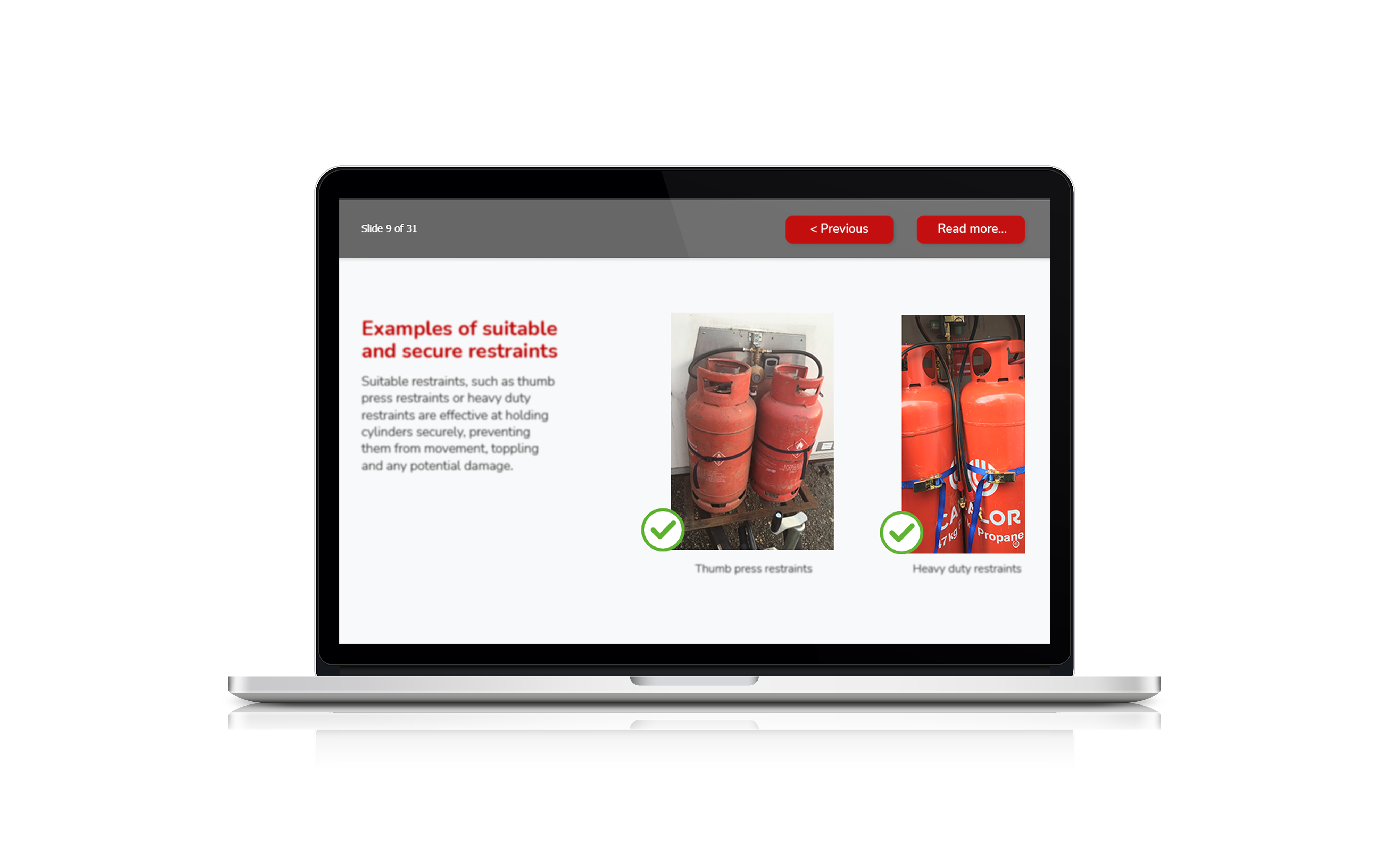
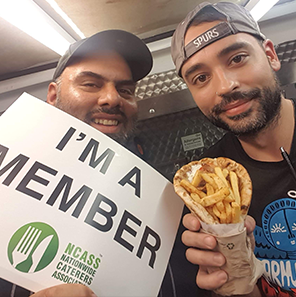
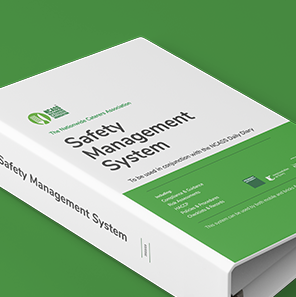
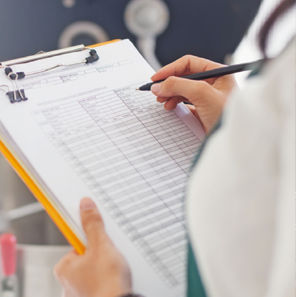

 Featured Training
Featured Training